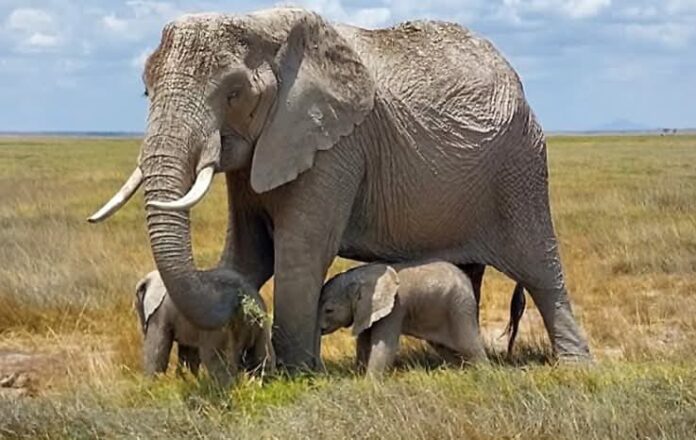By Michelle Ndaga
An elephant in Kenya’s Amboseli National Park has given birth to twins, a phenomenon that occurs in less than one percent of elephant births worldwide.
The Kenya Wildlife Service (KWS) confirmed that the mother and her calves are being closely monitored by wildlife officers within the park’s savanna ecosystem.
The birth marks a rare event in elephant conservation, with both calves reported to be in good condition under the watch of park rangers.
According to KWS, the sighting comes amid a baby boom in Amboseli, where more than 140 elephant calves have been born this year.
The surge reflects the park’s successful conservation measures, which have strengthened elephant protection and reduced threats from poaching and habitat loss.
Amboseli National Park, located in southern Kenya, is renowned for its large elephant herds and long-running conservation research.
The Kenya Wildlife Service continues to work with local and international partners to ensure the survival of these endangered animals.
The twin birth has also prompted cultural reflection, as a traditional Kalenjin proverb suggests that elephants cannot bear twins a belief now challenged by the rare occurrence.
KWS officials say they will continue monitoring the mother and calves in the coming weeks to ensure their health and safety within the thriving Amboseli ecosystem.



















